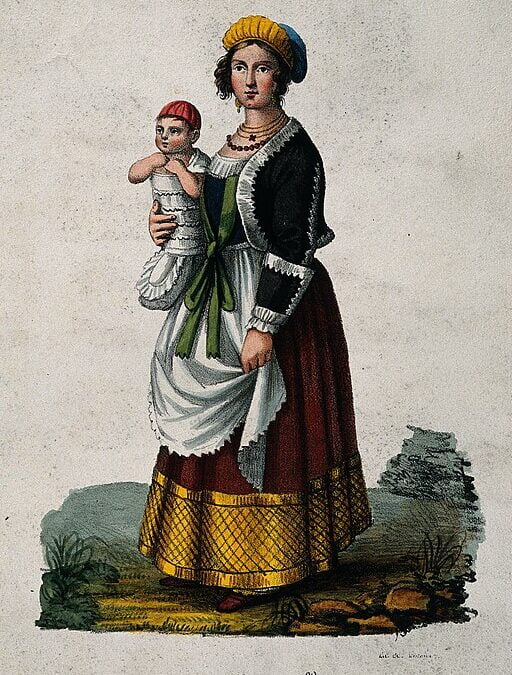Mothers in Theatre: The Double Bind
Theatre has long been a male-dominated institution. From the actors on stage to the directors and producers behind the scenes, men have traditionally held power in the theatre world. But what about mothers?
Mothers who work in theatre often face a double bind. They are expected to be just as dedicated to their work as their male counterparts, but they are also expected to be the primary caregivers for their children. This can be a difficult balance to strike, leading to significant stress for mothers.
The theatre industry often overlooks the challenges that mothers face. Work schedules are often long and unpredictable, and childcare can be expensive and difficult to find. As a result, many mothers feel like they have to choose between their careers and their families.

This is a problem for mothers and the theatre industry as a whole. Mothers bring a wealth of experience and talent to the table, and their absence is a loss to the field.
The theatre industry needs to do more to support mothers. This means providing flexible work arrangements, offering childcare assistance, and creating a more family-friendly culture. It also means changing the way that we think about motherhood. Motherhood is not a liability; it is an asset.
When we value the work of mothers, we make the theatre industry a better place for everyone.

The Work-Life Balance Dilemma for Mothers in Theatre
The theatre industry has long ignored mothers’ challenges balancing work and family responsibilities. This is because motherhood is often seen as a personal rather than a professional issue. As a result, mothers often feel pressure to “appear” childless to be taken seriously in their careers.
This pressure can be incredibly stressful, leading to several negative consequences for mothers in theatre. For example, women who are mothers may be less likely to be hired or promoted, and they may also be more likely to experience burnout.
This is unacceptable.
Mothers are an essential part of the theatre industry, and they deserve to be treated with respect. We must start by recognizing that motherhood is not just a personal issue. It is also a professional issue, significantly impacting women’s ability to succeed in their careers.
Once we acknowledge this, we can make the theatre industry more supportive of mothers. This means providing flexible work arrangements, offering childcare assistance, and creating a more family-friendly culture.
We need to do better for mothers in theatre.
They deserve successful careers without choosing between work and their families. We need to create an industry that welcomes and supports mothers so they can reach their full potential.
Theater as a Tool for Social Change: Marie NDiaye's Theater of the Mothers
French playwright Marie NDiaye uses her work to explore the role of mothers in a patriarchal society. Her plays often feature mothers made to make difficult choices to protect their children. NDiaye’s work is important because it gives voice to the experiences of marginalized women and challenges the traditional view of motherhood as a selfless act.
NDiaye’s plays are metadramas, meaning they reflect on the nature of theater itself. This is evident in how her plays often feature mothers compelled to play roles prescribed by society. For example, in the play Papa Doit Manger, the mother is driven to sacrifice her own needs to care for her husband and children. This role is both physically and emotionally demanding, ultimately leading to her death.
NDiaye’s work is a powerful reminder of how theater can be used to challenge patriarchal oppression. Her plays offer a critical view of how society expects mothers to behave, showing how these expectations can be harmful. By interrogating the role of theater in the oppression of mothers, NDiaye’s work shows how theater can raise awareness of social issues and offer a path toward social change.

Join Us in Supporting Mothers in Theatre
Gender discrimination is prevalent in all professions, and exorbitant childcare costs and lack of availability continue to struggle when caregivers need to work. Our social order still runs on an outmoded conception, assuming that one parent is at home.
However, theatrical motherwork goes beyond working parents’ everyday struggles in fulfilling the theatre’s unique demands, from production schedules to fundraising, promotional, and networking events. These are all predicated on the idea that the theatre professional is available around the clock. There can be an attitude within the theatre, as well, that when one becomes a parent, there are unstated consequences for the decision.
Further, theatre professionals who have children need to create the illusion that they can work any time and any number of hours to stay in the race, yet if they do that, they feel they are sacrificing their children, and guilt ensues. It takes careful planning and negotiations on the parent’s part; balance is difficult. Support is not here yet.
Mothers in Theatre: The Unpaid Work
Mothers in theatre need to make difficult choices and many sacrifices. Being part of a play, which historically does not pay much, means that any money would go toward a babysitter; therefore, it stops becoming a means for income but rather a non-paying hobby. It only furthers the story of the unpaid work of mothers.
Theatre mothers with young children without a support system must choose: to work or be a mom. Like many institutions, theatre must examine how it operates from an outdated patriarchal mode. Access to affordable childcare, government subsidies for self-employed and contracted, flexible schedules, and flexible medical leave are imperative for theater. Further, patrons should seek out art/theatre by and about mothers. Marie NDiaye’s theatre is an important endeavor, bringing attention to the issues of mothers and the theatre on the stage. It is possible to make theatre more inclusive to mothers, although it will take a multi-dimensional approach and a shakeup from the institution to the group to the individual.
Please join us in supporting these efforts to make theatre more inclusive to mothers. Together, we can create a more equitable and supportive environment for all theatre professionals, regardless of parental status.
Make Theatre More Inclusive to Mothers
In conclusion, theatre needs to be more inclusive to mothers. We need to create an industry that is welcoming and supportive of mothers, so that they can reach their full potential.
Here are some specific actions that the theatre industry can take to support mothers:
- Provide flexible work arrangements: This could include things like telecommuting, flextime, and job sharing.
- Offer childcare assistance: This could include things like on-site childcare, subsidies for childcare, or help finding childcare providers.
- Create a more family-friendly culture: This could include things like providing paid parental leave, flexible work hours, and a supportive work environment.
- Change the way that we think about motherhood: We need to start seeing motherhood as an asset, not a liability. Mothers bring a wealth of experience and talent to the table, and we must value their contributions.
Call to action:
We urge you to join us in supporting these efforts to make theatre more inclusive to mothers. Together, we can create a more equitable and supportive environment for all theatre professionals, regardless of parental status.
Sources:
Rusch-Drutz, Corinne. 2004. “Stage Mothers: A Qualitative Analysis of Women’s Work Experiences As Mothers in Toronto Theatre”. Journal of the Motherhood Initiative for Research and Community Involvement 6 (2). https://jarm.journals.yorku.ca/index.php/jarm/article/view/4925.
Ndiaye, Noémie. “CHAPTER XXI. Theater of the Mothers: Three Political Plays by Marie NDiaye” In Women Mobilizing Memory edited by Ayşe Gül Altınay, María José Contreras, Marianne Hirsch, Jean Howard, Banu Karaca and Alisa Solomon, 363-380. New York Chichester, West Sussex: Columbia University Press, 2019. https://doi.org/10.7312/alti19184-023

